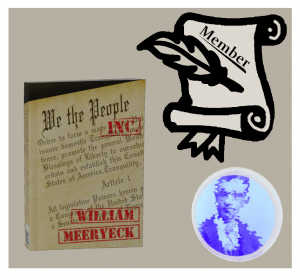In one of the most divisive times in our nation, one of the few public institutions that hasn’t been politicized — at least in the public eye — is our schools, but that is shifting. Previously not recognizing the political affiliations of board members, there could be advantages to being more open with school board affiliations, but with such a direct impact on our children, we’d be wise to not let it be another area where we are constantly disjointed and halted.
More than maybe any time in our history, both republicans and democrats are pushing school board candidates, and states like Tennessee are now formally acknowledging the political affiliations of their candidates. While the hope should be that a mix of ideologies gets us to what’s best for everyone, the dangers of politicizing our school boards could far outweigh the benefits.
One Benefit to Political School Boards: More Transparency
If there’s one thing that really could be an improvement out of party-affiliated school boards, it’s more transparency. There are questions from both sides about hidden agendas within our school system and among the people who run them, and the truth is, they’re bound to exist if a school board is made up of entrenched members with similar ideologies. Whether or not it’s nefarious or even intentional, certain priorities are going to guide them.
Whether it’s republicans who believe that liberal teachers are trying to indoctrinate their kids or democrats questioning textbook manufacturers and their motivations, putting political affiliations on the table at least provides the forum to talk about these things in a real political context and maybe come to some compromises, instead of making it a niche conversation that reads like both sides being wild conspiracy theorists.
The Risks Include Crumbling the Quality of Our Schools
While the theoretical benefits of these races being formally politicized could be real, there are other potential risks. Along with many of the same detrimental effects we see in other political arenas, we could also risk an unprecedented shift in the education system where curriculums across the country vary so much that some could become completely discredited or rule students out from future opportunities.
Some of those traditional risks are obvious. Pushing ideology is probably the one we fear most off the top of our heads, but it goes beyond that. We have to think about the affect of more money being involved, and that bringing all the same risks it does in big government. It could mean everyday people being pushed out of school boards because of a lack of money or connections, and people within the community having less of a say, should larger, outside factions start investing in these races. It could be a major step away from the interests of the “little guy”.
Where we have to consider new risks is with the quality of our schools. These are more unprecedented worries as they relate to politics. How much our schools could change with this new political aspect could give us some insight into how politicized it is already, but if boards get to be radicalized, then whole subject matter could be erased from the curriculum and potentially more, biased subject matter could be brought into the fold.
This will mean kids from different parts of the country receiving an even more unequal education then they do now. I think we’ve all had experiences where we wished our school had taught us something that we’ve heard was taught at other schools. Now imagine you went to a school that stops teaching science or history before a certain year. That’s not out of the realm of possibility if the school is being run by people who genuinely think those things are irrelevant. It’s not only a disservice that will make communities less intelligent, but one that could follow the children affected for the rest of their lives as other educational and career opportunities will close to them.
Keep Politics Out of Schools or The Checks and Balances Heavy
It’s hard to say at this point how much political affiliations will affect our schools and what is being taught, but partisanship isn’t the most direct path to anything, so we can be sure there’s probably more efficient ways to run a school board. However, we can’t dismiss the fact that partisanship is part of our lives, maybe acknowledging it will help. That being said, we need to be damn ready for the fight against it being in control of our school boards and the giant rippling effects that come with it.
